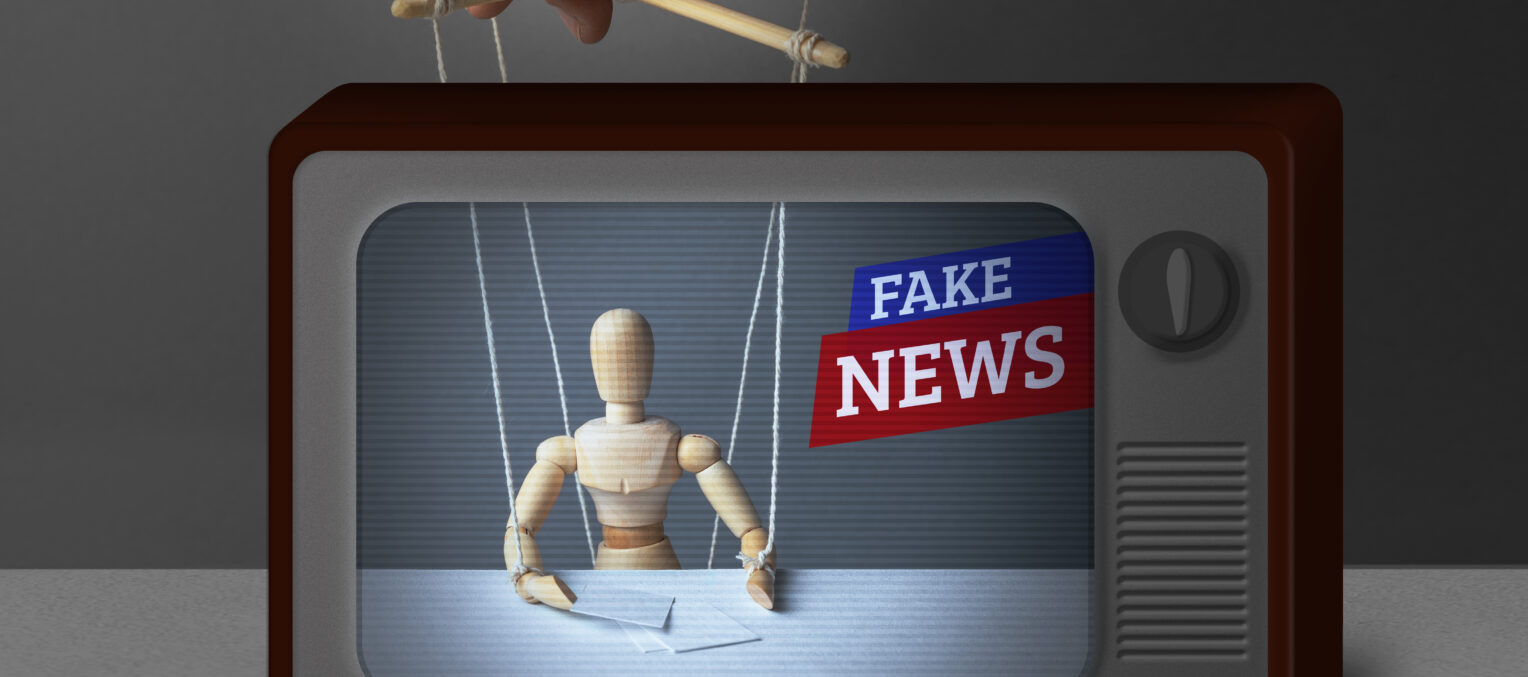
It seems that large language models (LLMs) are all the rage right now, from Bing’s announcement that it plans to integrate the ChatGPT technology into its search engine to Google’s announcement of its own LLM called “Bard” to Meta’s recent introduction of its Large Language Model Meta AI, or “LLaMA.” Each of these LLMs use artificial intelligence (AI) to create text-based answers to questions.
But it certainly didn’t take long after these innovative new applications were introduced for reports to emerge of LLM models just plain getting facts wrong. Given this, it is worth asking: how will the law deal with AI-created misinformation?
Among the first questions courts will need to grapple with is whether Section 230 immunity applies to content produced by AI. Of course, the U.S. Supreme Court already has a major Section 230 case on its docket with Gonzalez v. Google. Indeed, during oral arguments for that case, Justice Neil Gorsuch appeared to suggest that AI-generated content would not receive Section 230 immunity. And existing case law would appear to support that conclusion, as LLM content is developed by the interactive computer service itself, not by its users.
Another question raised by the technology is what legal avenues would be available to those seeking to challenge the misinformation. Under the First Amendment, the government can only regulate false speech under very limited circumstances. One of those is defamation, which seems like the most logical cause of action to apply. But under defamation law, plaintiffs—especially public figures, who are the most likely litigants and who must prove “malice”—may have a difficult time proving the AI acted with the necessary state of mind to sustain a cause of action.
Section 230 Likely Does Not Apply to Information Developed by an LLM
Section 230(c)(1) states:
No provider or user of an interactive computer service shall be treated as the publisher or speaker of any information provided by another information content provider.
The law defines an interactive computer service as “any information service, system, or access software provider that provides or enables computer access by multiple users to a computer server, including specifically a service or system that provides access to the Internet and such systems operated or services offered by libraries or educational institutions.”
The access software provider portion of that definition includes any tool that can “filter, screen, allow, or disallow content; pick, choose, analyze, or digest content; or transmit, receive, display, forward, cache, search, subset, organize, reorganize, or translate content.”
And finally, an information content provider is “any person or entity that is responsible, in whole or in part, for the creation or development of information provided through the Internet or any other interactive computer service.”
Taken together, Section 230(c)(1) gives online platforms (“interactive computer services”) broad immunity for user-generated content (“information provided by another information content provider”). This even covers circumstances where the online platform (acting as an “access software provider”) engages in a great deal of curation of the user-generated content.
Section 230(c)(1) does not, however, protect information created by the interactive computer service itself.
There is case law to help determine whether content is created or developed by the interactive computer service. Online platforms applying “neutral tools” to help organize information have not lost immunity. As the 9th U.S. Circuit Court of Appeals put it in Fair Housing Council v. Roommates.com:
Providing neutral tools for navigating websites is fully protected by CDA immunity, absent substantial affirmative conduct on the part of the website creator promoting the use of such tools for unlawful purposes.
On the other hand, online platforms are liable for content they create or develop, which does not include “augmenting the content generally,” but does include “materially contributing to its alleged unlawfulness.”
The question here is whether the text-based answers provided by LLM apps like Bing’s Sydney or Google’s Bard comprise content created or developed by those online platforms. One could argue that LLMs are neutral tools simply rearranging information from other sources for display. It seems clear, however, that the LLM is synthesizing information to create new content. The use of AI to answer a question, rather than a human agent of Google or Microsoft, doesn’t seem relevant to whether or not it was created or developed by those companies. (Though, as Matt Perault notes, how LLMs are integrated into a product matters. If an LLM just helps “determine which search results to prioritize or which text to highlight from underlying search results,” then it may receive Section 230 protection.)
The technology itself gives text-based answers based on inputs from the questioner. LLMs uses AI-trained engines to guess the next word based on troves of data from the internet. While the information may come from third parties, the creation of the content itself is due to the LLM. As ChatGPT put it in response to my query here:

Proving Defamation by AI
In the absence of Section 230 immunity, there is still the question of how one could hold Google’s Bard or Microsoft’s Sydney accountable for purveying misinformation. There are no laws against false speech in general, nor can there be, since the Supreme Court declared such speech was protected in United States v. Alvarez. There are, however, categories of false speech, like defamation and fraud, which have been found to lie outside of First Amendment protection.
Defamation is the most logical cause of action that could be brought for false information provided by an LLM app. But it is notable that it is highly unlikely that people who have not received significant public recognition will be known by these LLM apps (believe me, I tried to get ChatGPT to tell me something about myself—alas, I’m not famous enough). On top of that, those most likely to have significant damages from their reputations being harmed by falsehoods spread online are those who are in the public eye. This means that, for the purposes of the defamation suit, it is public figures who are most likely to sue.
As an example, if ChatGPT answers the question of whether Johnny Depp is a wife-beater by saying that he is, contrary to one court’s finding (but consistent with another’s), Depp could sue the creators of the service for defamation. He would have to prove that a false statement was publicized to a third party that resulted in damages to him. For the sake of argument, let’s say he can do both. The case still isn’t proven because, as a public figure, he would also have to prove “actual malice.”
Under New York Times v. Sullivan and its progeny, a public figure must prove the defendant acted with “actual malice” when publicizing false information about the plaintiff. Actual malice is defined as “knowledge that [the statement] was false or with reckless disregard of whether it was false or not.”
The question arises whether actual malice can be attributed to a LLM. It seems unlikely that it could be said that the AI’s creators trained it in a way that they “knew” the answers provided would be false. But it may be a more interesting question whether the LLM is giving answers with “reckless disregard” of their truth or falsity. One could argue that these early versions of the technology are exactly that, but the underlying AI is likely to improve over time with feedback. The best time for a plaintiff to sue may be now, when the LLMs are still in their infancy and giving off false answers more often.
It is possible that, given enough context in the query, LLM-empowered apps may be able to recognize private figures, and get things wrong. For instance, when I asked ChatGPT to give a biography of myself, I got no results:

When I added my workplace, I did get a biography, but none of the relevant information was about me. It was instead about my boss, Geoffrey Manne, the president of the International Center for Law & Economics:

While none of this biography is true, it doesn’t harm my reputation, nor does it give rise to damages. But it is at least theoretically possible that an LLM could make a defamatory statement against a private person. In such a case, a lower burden of proof would apply to the plaintiff, that of negligence, i.e., that the defendant published a false statement of fact that a reasonable person would have known was false. This burden would be much easier to meet if the AI had not been sufficiently trained before being released upon the public.
Conclusion
While it is unlikely that a service like ChapGPT would receive Section 230 immunity, it also seems unlikely that a plaintiff would be able to sustain a defamation suit against it for false statements. The most likely type of plaintiff (public figures) would encounter difficulty proving the necessary element of “actual malice.” The best chance for a lawsuit to proceed may be against the early versions of this service—rolled out quickly and to much fanfare, while still being in a beta stage in terms of accuracy—as a colorable argument can be made that they are giving false answers in “reckless disregard” of their truthfulness.




